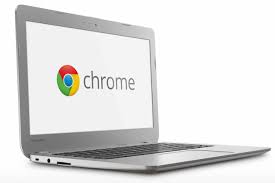
Research data shows that Google’s “Chrome” browser is currently the most used browser by quite a large margin. Indeed, I use it almost exclusively and it does pretty much everything I need. There are other choices though – Firefox and Opera to name two. Plus every Windows PC comes with Microsoft’s Internet Explorer (IE) or, with Windows 10, their new “Edge” browser (which is quite good, albeit five years overdue!)……
When buying a new Windows PC, the first thing that most people do is to use the built-in web browser to download their favorite “alternative” web browser! Mac computers come with Apple’s Safari browser, which is also very good and works in tandem with the other native Apple applications. However, many Mac users will download and install another browser alongside Safari – there’s nothing to stop you using more than one browser on a computer.
Since using the web is largely about “search”, Google’s Chrome browser is well designed to help you do just that. It’s also fast and secure. I have no qualms about doing my online banking and shopping through Chrome – provided I am connected at home and not on a public Wifi network. Chrome is also very good at handling the different types of streaming media, so whether you want to watch movies on Netflix or listen to music with Pandora, Chrome works well.
Whichever browser you decide to use, it’s worth taking the time to learn some of the key principles. For example, whenever you visit a website the browser “window” is filled by that site’s content. It is possible to have multiple windows active in a browser (they are call “tabs”) but you can only view one at a time. Bookmarks are another very useful feature, letting you quickly get to websites that you have visited in the past and have “favorited”. Using a web browser like Chrome, it is also possible to download and install all sorts of useful ‘extensions”, such as “AdBlock Plus”, which stops those annoying pop-up adverts from appearing while you browse.
Browsers have become a critical ingredient of the computer. In fact, Google has built a whole computer operating system around their Chrome browser, which powers a growing range of devices known as “Chromebooks”. These are “computers” that are primarily designed to be used online, and instead of relying mainly upon applications running on the device (as PCs do), they mostly work with applications that are accessed and run online – in “the Cloud”. As we move toward an era of being “always connected”, this approach makes increasing sense for an increasing number of people and reduces hardware cost.

